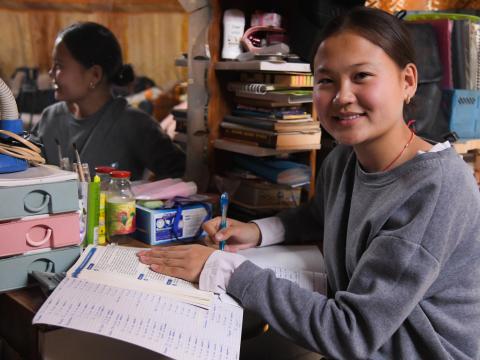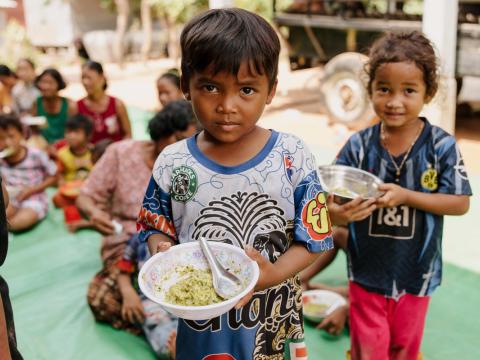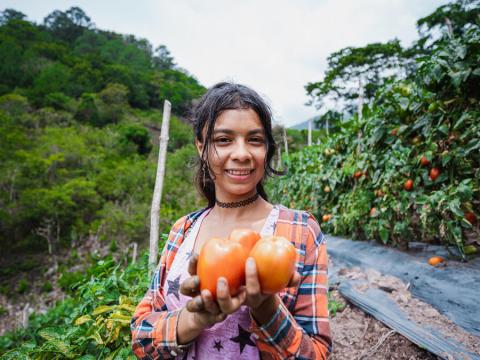Faith, Action & Hope Unite for Climate Justice
Andrea Kaufmann and Charlotte Masiello-Riome explain this month's historic moment when global Faith Leaders came together to sign the Interfaith Declaration on Climate Action – and what this means for COP 28.
In the throes of a global climate crisis demanding transformative action, diverse representatives of faith and indigenous traditions gathered in Abu Dhabi before a critical moment in building a sustainable plan for the future. With a shared concern for escalating climate impacts, these faith leaders and leading associations voiced a common commitment to jointly address this crisis. Building upon previous initiatives, including the interfaith appeal for COP26, this collective effort stems from a sacred duty to safeguard both the human family and the delicate ecosystem that sustains us.
World Vision was privileged to join these Twenty-eight leaders from more than 19 different religions, faith traditions, and denominations as they signed the Interfaith Declaration on Climate Action Towards COP28, which declares that “our respective faith instils in us a sacred duty to cherish not only our human family but also the fragile ecosystem that cradles us.”
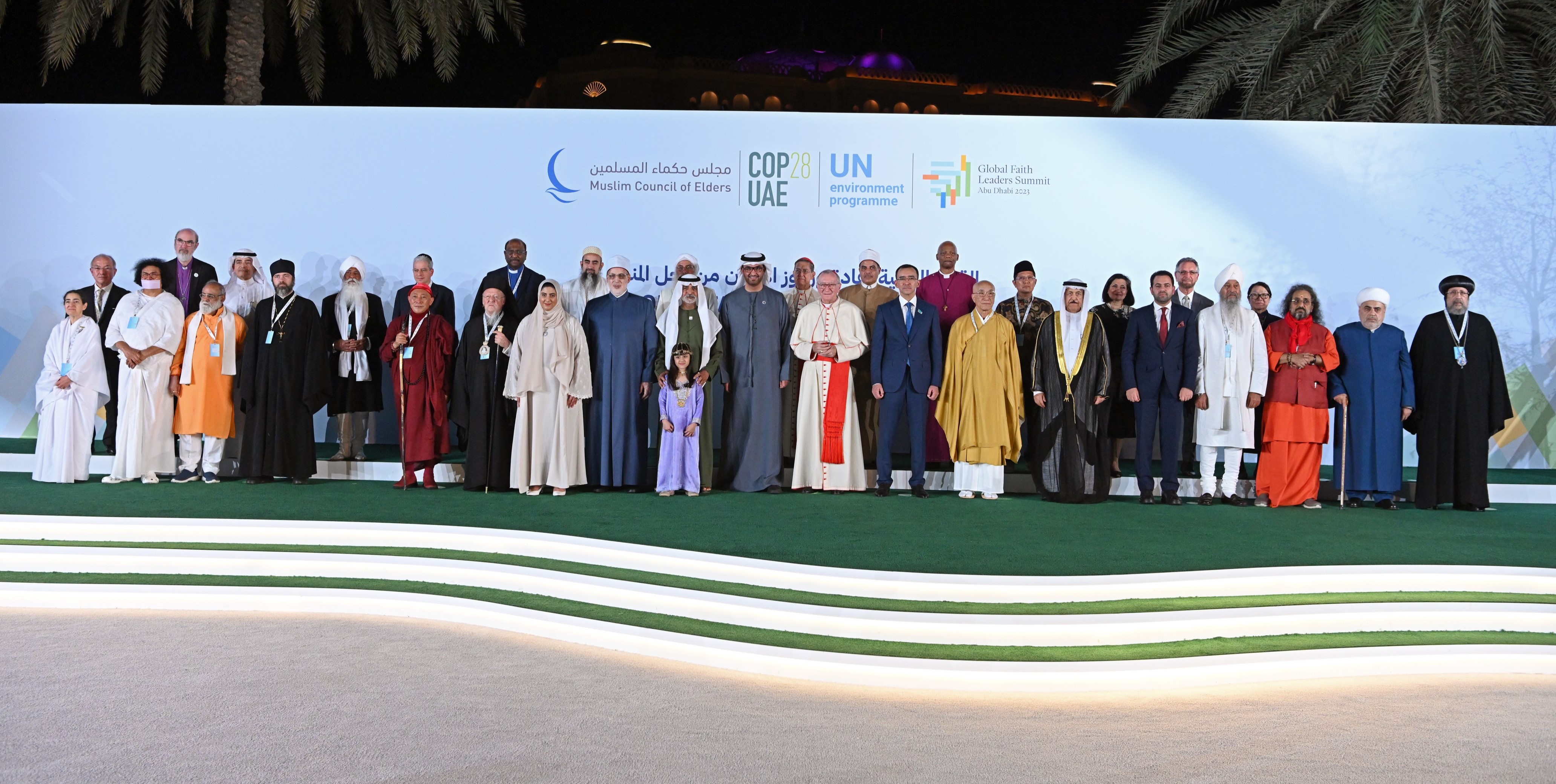
Organised by the Muslim Council of Elders (MCE) and hosted in collaboration with the COP28 Presidency, the United Nations Environment Programme (UNEP) and the UAE Ministry of Tolerance and Coexistence, these leaders signalled their commitment to environmental action with the signing of ‘Confluence of Conscience: Uniting for Planetary Resurgence’ known as ‘The Abu Dhabi Interfaith Statement for COP28.’ They committed to the statement’s call for “transformative action to keep 1.5°C within reach and serve affected and vulnerable communities.”
The convergence of faith and action is a potent—though often undervalued—force in addressing the repercussions of environmental crises, particularly in tackling conflict and hunger. As climate change intensifies, its influence on resource scarcity, displacement, and food insecurity becomes increasingly evident. Amid this global challenge, the role of faith and faith communities is emerging as essential not only for their influence and actions they take but also for the hope they bring.
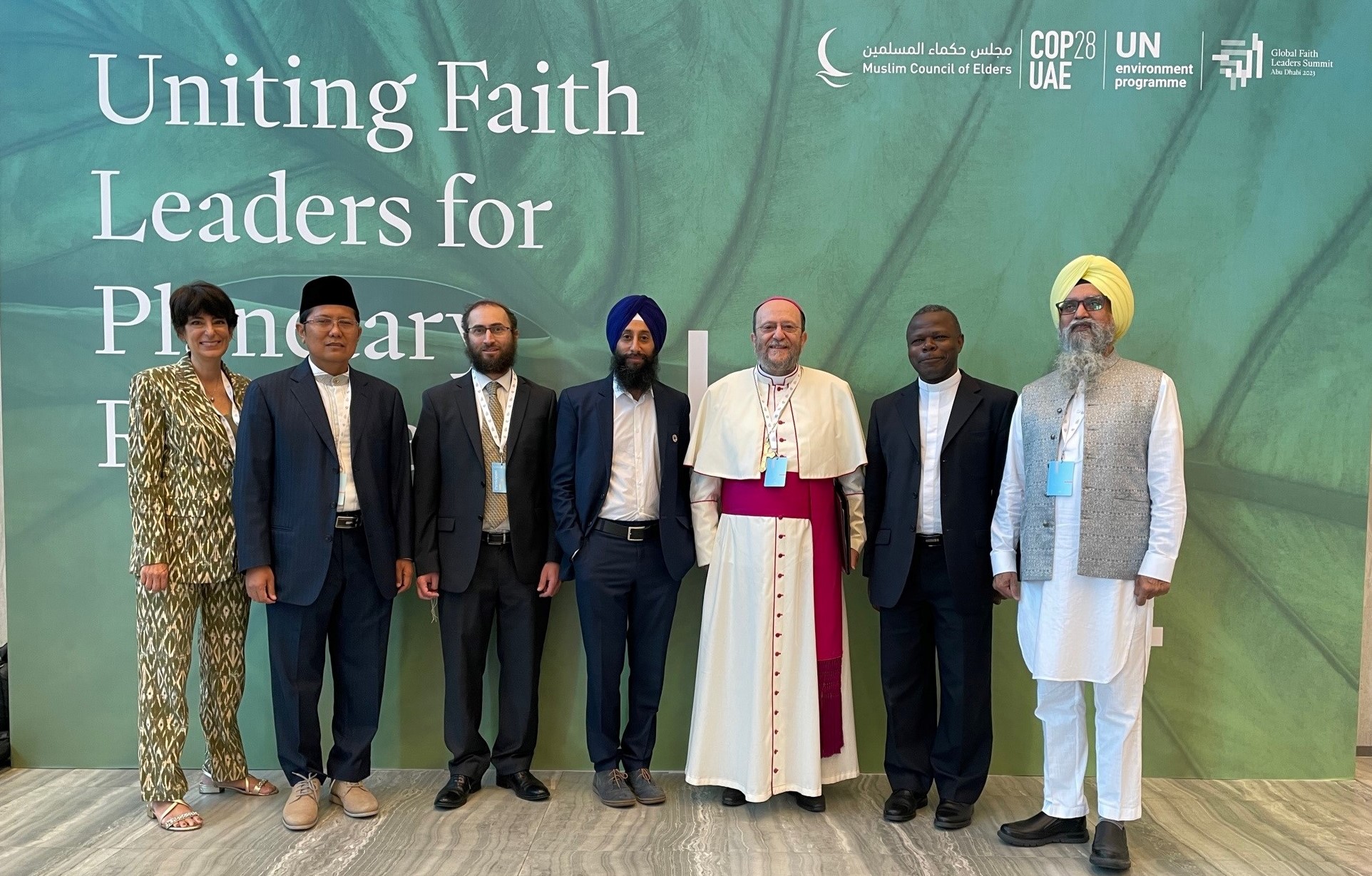
Increasingly, in multistakeholder dialogues and conversations, “secular” actors look to faith actors and groups to provide a people-centred and values-based lens. At the 2021 Food Systems Summit, the Secretariat convened a group of faith-based organisations to lead a series of dialogues on the role of faith and values in driving change in food systems. The group also hosted a series of side events on the Food Systems +2 Stocktaking Moment earlier this year, highlighting local faith communities' essential, ongoing role in driving food system transformation. In November, a group of leaders in the regenerative agriculture space held a meeting focused on Unearthing Regenerative values. One leader noted that historically, paradigmatic shifts—like the one necessary for us to avert a climate collapse—essentially always centred on faith engagement and mobilisation of faith communities.
Faith groups advocate for compassion, justice, and stewardship for people and the planet. They have deep connections and commitment to care for the environment. This shared ethos provides a solid foundation for faith-based organisations to actively engage in resolving the social and environmental crises catalysed by climate change through platforms like UNEP Faith for Earth.

The presence of Faith in Climate dialogues is easy to understand. Firstly, faith institutions possess extensive networks and credibility within communities, fostering trust and the ability to mobilise resources and support. Their influence on people's behaviours and mindsets can be instrumental in promoting sustainable practices, such as responsible resource management, conservation, and community resilience-building.
Through education and awareness campaigns, faith-based groups can effectively disseminate knowledge on climate change adaptation and mitigation strategies, empowering communities to address environmental challenges. 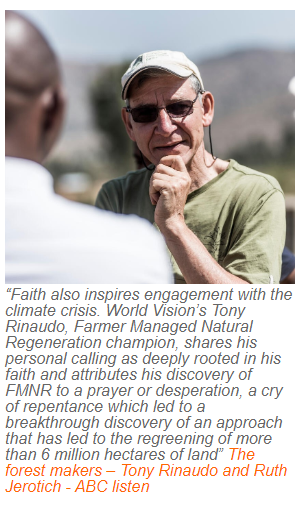
Faith-based organisation’s emphasis on ethical responsibility often drives them to support vulnerable communities affected by climate-induced conflicts and hunger. They provide aid, advocate for policies that address the root causes of conflicts, and facilitate sustainable agricultural and food security programmes.
Furthermore, faith institutions serve as moral compasses, advocating for peace, dialogue, and reconciliation in regions grappling with conflict fueled by environmental stressors. By fostering interfaith dialogue, these groups promote unity, resilience, and shared responsibility in addressing climate-induced conflicts, thereby fostering long-term stability.
Finally, faith and faith communities bring a sense of hope and resilience in the face of the tremendous challenges we are facing. Katharine Hayhoe, a leading climate scientist and person of faith herself, regularly advocates that real action comes from meeting fear at home. “Real hope is being convinced that there is a better future possible if we do everything we can to get there.”
It is time for the global community to recognise, support, and collaborate with faith-based organisations, leveraging their values and influence to effectively address the impacts of climate change on conflict and hunger. Embracing their role is essential in navigating the intricate web of challenges posed by a changing climate, ensuring a better and more harmonious world for current and future generations.
-------------------------------
Note: The COP28 Presidency, UNEP and the Muslim Council of Elders co-hosted the Faith Pavilion at COP28, marking the first-ever pavilion of its kind at a COP. The Faith Pavilion hosted panels with religious figures, scientists, and political leaders, as well as encouraged intergenerational dialogue involving young faith leaders, and indigenous representatives.
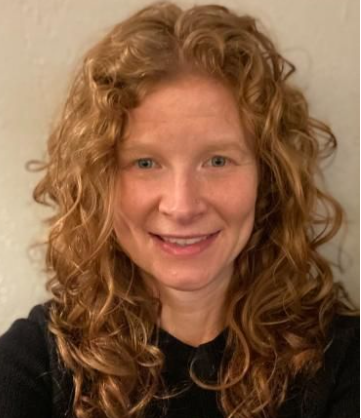
Andrea Kaufmann is World Vision’s Director of External Engagement for
Faith and Development at World Vision. Learn more.
Learn how World Vision is building a world where faith leaders become
channels of hope

Charlotte Masiello-Riome is World Vision’s Senior Advisor for Communications and External Engagement at World Vision.
Learn more about World Vision at COP28.
